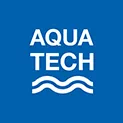Study investigates the ability to remove ‘forever chemicals’
Point of Use (PoU) water systems are a solid way to remove contaminants from water sources; however, their effectiveness varies when it comes to PFAS-removal.
That’s according to a new study from Duke University and North Carolina State University that tested 76 point of use filters and 13 point of entry, or whole-house, systems.
One of the conclusions from the study was that all under-sink reverse osmosis (RO) and two-stage filters enabled a ‘near complete’ removal of per-and polyfluoroalkyl substances (PFAS).
Key study takeaways
Published in Environmental Science & Technology Letters, the peer-reviewed study is said to be the first to examine PFAS-removal efficiencies of PoU filters in a residential setting.
Water samples from Chatham, Orange, Durham and Wake counties in central North Carolina, and New Hanover and Brunswick counties in Southeastern N.C., were tested.
Researchers tested for multiple PFAS contaminants, including three perfluoroalkal sulfonic acids (PFSAs), seven perfluoroalkyl carboxylic acids (PFCAs) and six per- and poly-fluoroalkyl ether acids (PFEAs).
While RO and two-stage filters reduced PFAS levels by 94 per cent in the study, activated-carbon filters removed 73 per cent, with the results “varying greatly”.
Duke University said: “In some cases, the chemicals were completely removed; in other cases, they were not reduced at all."
There was no clear trend between the filter brand and manufacturer and removal efficiency, the researchers added.
Detlef Knappe, the S. James Ellen Distinguished Professor of Civil, Construction and Environmental Engineering at NC State, said home filters should be a "stopgap" and that PFAS contaminants should be controlled at their source.
PFAS: a cause for concern
PFAS have recently been a cause for concern, particularly across the North American market.
Earlier this month The Guardian published a story headlined ‘The ‘forever chemicals’ fuelling a public health crisis in drinking water’.
It reported that around 700 PFAS-contaminated sites had been identified in the US, with more than 110 million people estimated to be “drinking contaminated water”.
Water utilities such as Orange County Water District are proactively investing $1.4 million into what is called the nation's 'largest PFAS removal programme’.
But what are PFAS?
Also referred to as ‘forever chemicals’ due to their ability to persist in the environment and accumulate in the human body ‘indefinitely’, the manmade chemicals have been manufactured as far back as the 1940s and used in consumer products, including non-stick saucepans and fire extinguisher foam.
While PFOA and PFAS are no longer manufactured in the US, they are still used in imported products.
Over the years they have found their way into the environment through landfill sites, conventionally treated wastewater and military sites and other sources, including PFAS manufacturing sites.
Environmental justice: treatment comes at a price
While under-sink RO technology was rated as the “most efficient system” for removing both the PFAS contaminants prevalent in central N.C, Knappe added that this comes at a price.
"Unfortunately, they also cost much more than other point-of-use filters,” he said. “This raises concerns about environmental justice since PFAS pollution affects more households that struggle financially than those that do not struggle."
Funding for the study came from the N.C. Policy Collaboratory through the N.C. PFAS Testing Network and from the Wallace Genetic Foundation.







